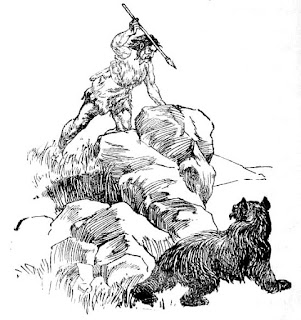 Do we appreciate the country of our birth? The place we are born and grow up in? When we think of going on holiday, we often
think of visiting other countries; perhaps a road trip discovering America, or
a safari in Africa to discover the amazing wildlife out there. But we often forget to explore and discover
the wonders and beauty of the country we live in.
Do we appreciate the country of our birth? The place we are born and grow up in? When we think of going on holiday, we often
think of visiting other countries; perhaps a road trip discovering America, or
a safari in Africa to discover the amazing wildlife out there. But we often forget to explore and discover
the wonders and beauty of the country we live in.
I live in England, part of Great Britain. Great Britain is an island that consists of
England, Scotland and Wales; with Ireland to our west and Europe to our
east. It’s funny, I don’t think of my
country as an island, I think of it as a large solid piece of land, a large
country. I imagine islands to be small tropical
patches of sand, a few palm trees in the middle, in a hot climate surrounded by
the ocean. That isn’t anything like
Britain.
Britain is traditionally a cold, wet and windy place. We think of business people rushing down the
rain-soaked city streets with umbrellas, everything cold, wet, and grey. But if you go back in time, Britain was a
very different place.
Prehistoric Plants
and Animals
During the last Ice Age, some 20,000 years ago, Britain was connected to
both Ireland and Europe by small strips of land, allowing prehistoric man and
beast to migrate in and out of the country.
Early humans had to be hardy, living in caves and making flint tools by hand,
they hunted brown bears, antelopes and wild horses across the frozen plains of
Britain.
The Ice Age eventually came to an end, with the ice thawing,
rising sea levels cut Britain off, first from Ireland, then from Europe
too. The once arctic climate now reached
a warm 17 degrees Celsius in summer, allowing birch trees to spread, with
shrubs and grasses appearing too. The green
and pleasant land that we know today was beginning to take shape. The main hunted animal species were horses
and red deer, although hares, mammoth, rhino and hyena were also hunted. How amazing that we had these creatures in
our country?
As the greenery spread and began to develop into forests,
humans struggled to hunt the herds of wild horses and reindeer they were used
to across the flat plains. They had to
find new ways to hunt, and turned to the pigs, deer, wild boar and aurochs (wild
cattle) flourishing in the new pine, birch and alder forests now covering our
land.
Around 5,000 years ago, as temperatures continued to rise,
the pine forests were replaced by woodland, nature was blooming, with so much
vegetation and wild animals, there seemed to be plenty to go around. But humans were also blooming, our population
was increasing, and so were our hunting and gathering skills. So much so, we were beginning to exhaust our
natural resources. (Sound
familiar?).
So around 4,500 years ago, we began growing our own plants
and domesticating wild animals as food. Forests
were cleared to make room for crops and animal enclosures. They farmed native pigs and cattle at first,
then sheep and goats were imported from the continent, along with wheat and
barley, for which Britons later became renowned wheat farmers in the eyes of
the incoming Romans. Britain gradually became
a country of arable land, pastureland, and managed woodland.
Humans relied on woodland for just about everything: food,
heat, animal enclosures, even shelter (once they ventured out of their
caves). Britons learned coppicing, the
art of cutting young tree stems down close to the ground, where new shoots will
grow back and can be harvested again. They
also discovered pollarding, similar to coppicing, only they cut the branches to
just above head height to prevent animals from grazing on the new shoots. Both brilliant ways to manage trees for
timber, without killing the tree.
This now makes sense of something I remember doing in Runescape, a medieval fantasy online roleplaying game set in a fictional world, where you performed a lot of the skills and tasks of medieval English people. I remember we chopped the trees down to stump height, and the whole tree would reappear within a few moments. Obviously time is speeded up in video games, but the concept remains the same, we were coppicing the trees so that they could grow back and be harvested again.
Personally, I would love to travel back in time, see the country as it was, covered in woodland full of strange and beautiful creatures. I think it would seem almost like visiting an alien planet today, a bit like in the movie Avatar when they explore the forest and see alien animals for the first time. Everything is wondrous and exciting.
Photo Credits: Images 1, 2 and 3 - Wikipedia Creative Commons license. Image 4 - WT/ML Woodland Trust Media Library.
Photo Credits: Images 1, 2 and 3 - Wikipedia Creative Commons license. Image 4 - WT/ML Woodland Trust Media Library.




No comments:
Post a Comment